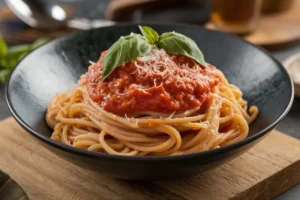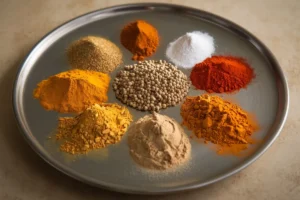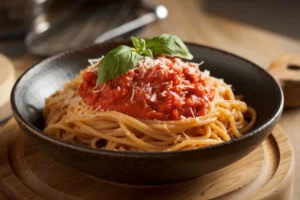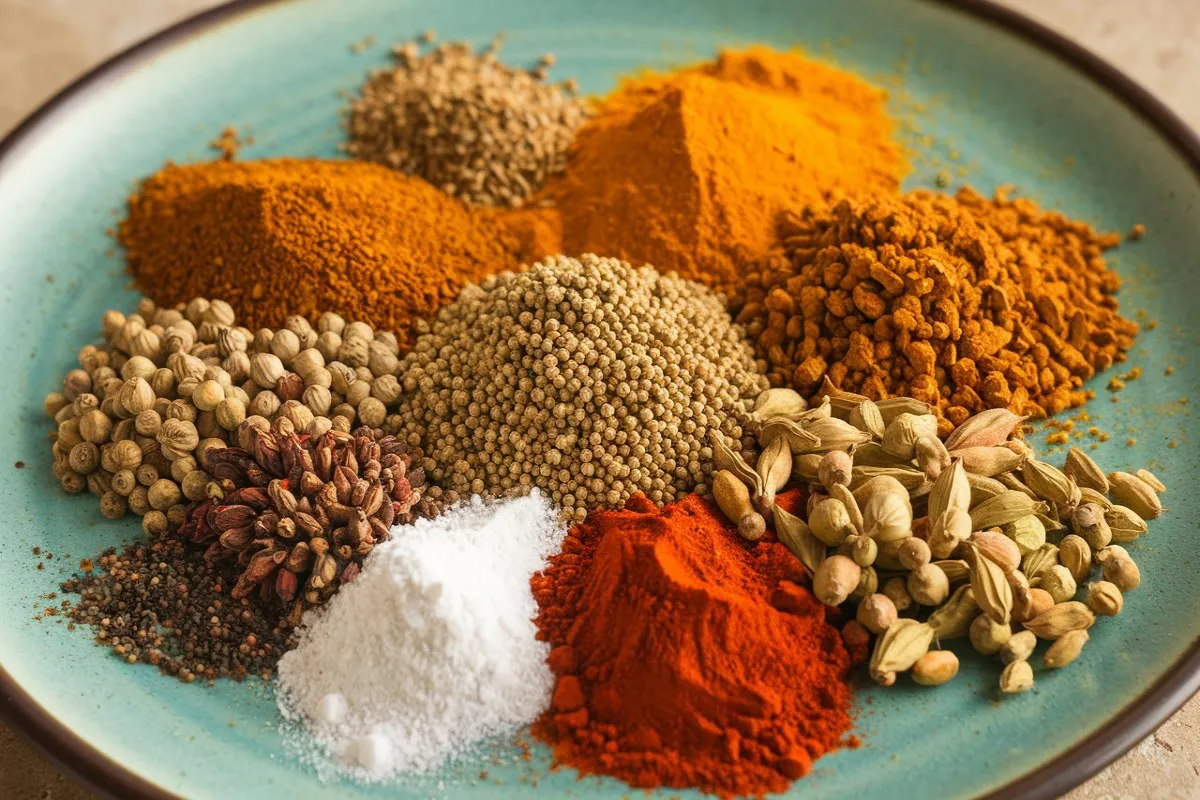Gastroesophageal reflux disease (GERD), more commonly known as acid reflux, is a condition that affects millions of people worldwide. It occurs when stomach acid flows back up into the esophagus, leading to a variety of uncomfortable symptoms such as heartburn, chest pain, and regurgitation. One common question that arises for those suffering from reflux is whether spices, known for their heat and flavor, are bad for this condition.
In this article, we will delve into the relationship between spices and reflux, exploring whether they exacerbate the symptoms, the science behind this interaction, and how to enjoy flavorful meals without triggering reflux.
Understanding Acid Reflux and Its Causes
Before diving into the specifics of spices, it’s essential to understand what causes acid reflux. Reflux happens when the lower esophageal sphincter (LES), a ring of muscle that acts as a valve between the esophagus and stomach, becomes weakened or relaxed at inappropriate times. This allows stomach acid to escape into the esophagus, causing the burning sensation commonly known as heartburn.
Common Triggers of Acid Reflux
Several factors can trigger acid reflux, including:
- Dietary Choices: Foods that are high in fat, acidic, or spicy can irritate the stomach lining and increase acid production, potentially leading to reflux.
- Lifestyle Factors: Obesity, smoking, and excessive alcohol consumption can increase the likelihood of reflux.
- Medical Conditions: Conditions like hiatal hernia or pregnancy can exacerbate reflux symptoms.
- Eating Habits: Eating large meals or lying down immediately after eating can trigger reflux.
Given that dietary choices are a significant factor, many people wonder whether spices, often categorized as irritants, should be avoided.
The Science Behind Spices and Reflux

Spices are used worldwide to add flavor and heat to dishes, and they come in various forms, from fresh herbs to dried powders. While spices offer numerous health benefits, including anti-inflammatory properties and antioxidants, they can also be a double-edged sword for those with acid reflux.
Capsaicin: The Culprit Behind the Heat
The active component in many spicy foods, especially chili peppers, is capsaicin. This compound is responsible for the burning sensation that spicy foods create. Capsaicin is known to relax the LES, which can allow stomach acid to flow back into the esophagus, potentially triggering or worsening reflux symptoms.
Capsaicin also slows down the digestion process, meaning food stays in the stomach longer, increasing the chances of reflux. Therefore, for individuals who are sensitive to spicy foods, reducing or avoiding capsaicin-containing spices might help manage reflux symptoms.
Other Spices and Their Impact
Not all spices are created equal when it comes to reflux. While capsaicin is a well-known irritant, other spices can have varying effects on individuals with reflux:
- Black Pepper: Commonly used in many dishes, black pepper can irritate the esophagus and worsen reflux in some individuals.
- Garlic and Onion: Both garlic and onion are flavorful additions to many dishes, but they can cause relaxation of the LES and contribute to heartburn.
- Ginger: Unlike other spices, ginger has anti-inflammatory properties and can actually help reduce the symptoms of reflux. It is often recommended as a natural remedy for nausea and digestive issues.
- Turmeric: Known for its anti-inflammatory and antioxidant properties, turmeric is generally well-tolerated by those with reflux, though it should still be consumed in moderation.
Individual Sensitivity
It’s important to note that the impact of spices on reflux varies from person to person. Some individuals may find they can tolerate certain spices without issue, while others may need to avoid them entirely. Keeping a food diary to track which spices trigger symptoms can be an effective way to manage reflux.
How to Enjoy Spices Without Triggering Reflux
For those who love the flavor and heat that spices bring to their meals, giving them up entirely can seem daunting. Fortunately, there are ways to enjoy spices without exacerbating reflux symptoms.
Moderation is Key
One of the most effective ways to manage reflux while still enjoying spices is moderation. Using smaller amounts of spices can reduce the likelihood of triggering symptoms. For instance, instead of heavily seasoning a dish with chili powder, a smaller amount can still provide flavor without overwhelming the digestive system.
Choose Milder Alternatives
Opting for milder spices that are less likely to cause reflux can allow you to continue enjoying flavorful meals. For example, replacing black pepper with herbs like basil or oregano can add flavor without the risk of heartburn. Ginger and turmeric are also excellent alternatives that offer health benefits without irritating the stomach.
Cooking Techniques Matter
How you cook your food can also impact reflux. Grilling, roasting, or baking spices into dishes can reduce their intensity compared to frying or sautéing. Additionally, pairing spicy foods with alkaline foods, such as vegetables or whole grains, can help neutralize stomach acid.
Meal Timing and Portion Control
Eating smaller, more frequent meals instead of large portions can help prevent reflux. Spacing out meals and avoiding lying down immediately after eating are also effective strategies. By giving your stomach time to digest before lying down, you reduce the risk of acid escaping into the esophagus.
Hydration and Spices
Drinking plenty of water during meals can help dilute stomach acid and prevent reflux. However, be cautious with carbonated beverages, as they can increase pressure on the LES and trigger symptoms.
Personal Experimentation
Because the effect of spices on reflux can vary from person to person, it’s important to experiment with different spices and cooking methods to see what works best for you. Keeping a food diary to monitor how your body reacts to certain spices can help you identify and avoid triggers.
The Benefits of Spices
While it’s clear that certain spices can exacerbate reflux, it’s also important to recognize that spices offer a host of health benefits. Spices are rich in antioxidants, which can help protect the body against inflammation and chronic diseases. They also add flavor to food, which can make healthy eating more enjoyable and sustainable.
Anti-Inflammatory Properties
Many spices, such as turmeric and ginger, have anti-inflammatory properties that can benefit those with chronic inflammation. Chronic inflammation is linked to various diseases, including heart disease and cancer, so incorporating anti-inflammatory spices into your diet can be beneficial.
Digestive Benefits
Certain spices can actually aid in digestion and help alleviate symptoms of indigestion. For example, ginger has been used for centuries as a natural remedy for nausea and upset stomach. It can help speed up the digestion process, reducing the risk of reflux.
Flavor Without Calories
Spices are an excellent way to add flavor to meals without adding extra calories, fat, or sugar. This makes them a great choice for those looking to maintain a healthy diet without sacrificing taste.
Spices and Metabolism
Some spices, such as cayenne pepper, are known to boost metabolism. While this can be beneficial for weight management, it’s important for those with reflux to balance the potential metabolic benefits with the risk of triggering symptoms.
Spices to Include in a Reflux-Friendly Diet

For individuals who want to manage their reflux while still enjoying flavorful food, here are some spices and herbs that can be included in a reflux-friendly diet:
- Ginger: Known for its digestive benefits, ginger can help alleviate nausea and reduce inflammation.
- Turmeric: With powerful anti-inflammatory properties, turmeric can be used in a variety of dishes without triggering reflux.
- Basil: A mild herb that adds flavor without causing irritation.
- Oregano: Another mild herb that can be used in place of stronger spices like black pepper.
- Parsley: Fresh or dried parsley adds a subtle flavor that is gentle on the stomach.
- Cinnamon: While it adds warmth and sweetness to dishes, cinnamon is generally well-tolerated by those with reflux.
Recipes for a Reflux-Friendly Diet
Incorporating reflux-friendly spices into your diet doesn’t mean sacrificing flavor. Here are a few recipe ideas that are both flavorful and gentle on the stomach:
Ginger-Turmeric Tea
This soothing tea combines the digestive benefits of ginger with the anti-inflammatory properties of turmeric. Simply steep fresh ginger slices and turmeric in hot water, add a touch of honey, and enjoy a warm, calming beverage that’s easy on the stomach.
Herb-Roasted Chicken
Season chicken with a mixture of mild herbs like basil, oregano, and parsley, along with a pinch of turmeric. Roast until golden brown for a delicious, reflux-friendly meal.
Cinnamon Oatmeal
For a comforting breakfast, prepare a bowl of oatmeal and sprinkle it with cinnamon and a touch of honey. This simple dish is both satisfying and gentle on the digestive system.
Frequently Asked Questions (FAQs)
Can Spices Cause Long-Term Damage to the Esophagus?
While spicy foods can exacerbate reflux symptoms, leading to discomfort, there is no direct evidence that they cause long-term damage to the esophagus. However, chronic acid reflux can lead to conditions such as esophagitis or Barrett’s esophagus, which are associated with a higher risk of esophageal cancer. Therefore, it’s important to manage reflux symptoms effectively, whether that involves reducing spicy foods or making other dietary and lifestyle changes.
Are There Any Spices That Help with Reflux?
Yes, certain spices like ginger and turmeric can actually help with reflux symptoms. Ginger is known for its digestive benefits and can help alleviate nausea and reduce inflammation. Turmeric, with its anti-inflammatory properties, is another spice that may be beneficial for those with reflux. Incorporating these spices into your diet can help manage symptoms without sacrificing flavor.
How Can I Enjoy Spicy Foods Without Triggering Reflux?
If you love spicy foods but are prone to reflux, moderation is key. Start by reducing the amount of spicy ingredients in your dishes and see if this helps manage your symptoms. Pairing spicy foods with alkaline foods, such as vegetables or whole grains, can also help neutralize stomach acid. Additionally, choosing milder spices or incorporating them into well-balanced meals can allow you to enjoy spice without the discomfort.
Can Acid Reflux Be Completely Cured by Avoiding Spices?
Avoiding spices alone is unlikely to completely cure acid reflux, as the condition is often caused by a combination of factors, including diet, lifestyle, and medical conditions. However, reducing or eliminating certain spices that trigger symptoms can significantly improve quality of life and help manage reflux more effectively. It’s important to consult with a healthcare provider for a comprehensive approach to managing reflux.
Is It Safe to Use Over-the-Counter Medications with Spices?
Over-the-counter medications like antacids or H2 blockers can help manage reflux symptoms, even if you consume spicy foods. However, it’s always best to consult with a healthcare provider before combining medications with specific dietary changes. They can provide personalized advice based on your individual health needs and help you find the best approach to managing reflux.

Conclusion
While spices can be a potential trigger for acid reflux, they don’t have to be completely off-limits. Understanding how different spices affect your body, practicing moderation, and experimenting with reflux-friendly alternatives can allow you to enjoy flavorful meals without the discomfort of reflux. By making mindful choices and paying attention to your body’s signals, you can strike a balance between flavor and comfort, ensuring that your meals are both enjoyable and easy on your digestive system.
Spices, like many things in life, require balance. While they can add zest and excitement to your meals, it’s important to be mindful of how they affect your body, especially if you suffer from reflux. With the right approach, you can continue to enjoy a flavorful diet while managing your symptoms effectively.

